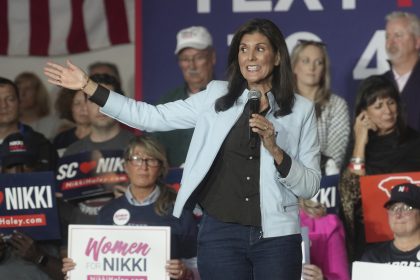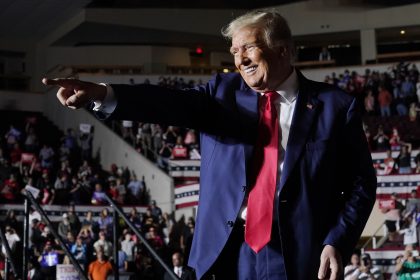Solicitor General Calls Out Cruz in Supreme Court Case
Says Senate Campaign’s Injuries Were Self-Inflicted

WASHINGTON — The Ted Cruz for Senate’s First Amendment challenge to a key campaign finance law should be tossed by the Supreme Court as the campaign committee’s alleged injuries were self-inflicted, the U.S. solicitor general claimed in a court filing on Tuesday.
As previously reported by The Well News, Cruz and his campaign are challenging a provision of the Bipartisan Campaign Reform Act that establishes a limit on the amount of post-election contributions that can be used to repay loans candidates themselves make to their campaigns.
The case is set to be heard by the Supreme Court on Wednesday.
Cruz argues that the limit, which says loans not repaid within 20 days after an election face a $250,000 limit, violates the free speech clause of the First Amendment and could prevent candidates from loaning their campaigns money in the future.
The case stems from the 2018 senatorial contest that incumbent Sen. Ted Cruz, R-Texas, narrowly won over his Democratic challenger Beto O’Rourke.
In the end, by Texas standards, it was a squeaker, with Cruz winning by just 219,000 votes or about 2.6 percentage points.
On Nov. 5, 2018, the day before Election Day, Cruz extended two last-minute loans to Ted Cruz for Senate, his campaign committee, totalling $260,000.
According to Cruz, after the election, his campaign committee used the funds it had on hand to pay vendors and meet other obligations instead of repaying the loans made by the senator.
But the Cruz campaign waited more than 20 days to get to Cruz’s loans, allegedly only getting around to them in early December 2018.
Because the 20 days had elapsed, the campaign repaid Cruz just $250,000; the amount of the loans that still exceeded the statutory cap — $10,000 — was converted into a campaign contribution.
But in a filing made public Tuesday, Solicitor General Elizabeth Prelogar argues Cruz’s claim is baseless and that neither he nor his campaign committee have standing to pursue the litigation.
“Our opening brief explains that appellees have produced no record evidence that they have exhausted the $250,000 cap on the use of post-election funds,” Prelogar wrote. “Our opening brief also argues that the record affirmatively shows that they have not exhausted that cap.
“With respect to the first of those points, appellees do not even assert — let alone cite record evidence showing — that they used post-election funds to repay Sen. Cruz $250,000. To the contrary, appellees state [in a legal brief] that the committee ‘did not undertake the meaningless task of attempting to trace which fungible dollars were used to repay Cruz’s loans.’ But it is the plaintiff’s burden to prove, not the defendant’s burden to disprove, the factual predicates of standing,” she said.
Prelogar goes on to note that “appellees argue that … ‘deposition testimony’ … clearly shows that the contributions received after election day were used to repay debt outstanding from the 2018 campaign.”
“But that carefully worded sentence elides the distinction between repaying debt in general and repaying Sen. Cruz’s loan in particular,” she said.
Prelogar then turns directly to the heart of Cruz’s argument.
“Even on [the] appellees’ view, the record would show at most that the committee could have repaid Sen. Cruz’s loan by using post-election funds or, as appellees put it, … that the committee had raised post-election funds ‘in amounts sufficient to repay $250,000 of Cruz’s loans’ by the time the $250,000 repayment was made. It would not show that the committee actually used those funds for that purpose.”
Prelogar contends the repayment was delayed not to achieve any campaign-related end, “but solely to facilitate this lawsuit.”
She goes on to assert that Cruz’s campaign committee had more than $2 million in pre-election funds still on hand after the 2018 election, stating, “It could have used that money to repay Sen. Cruz in full after the election.”
“It also could have repaid Sen. Cruz $10,000 within 20 days after the election, and then raised post-election funds to repay the remaining $250,000. Those alternatives would have protected Sen. Cruz’s claimed constitutional interest in being “assured of repayment after election day,” she said.
“Yet appellees elected not to repay any portion of the loan until the 20-day regulatory window had elapsed, with ‘the sole and exclusive motivation’ of ‘establish[ing] the factual basis for this challenge. If any injury can be considered self-inflicted, it is [the] appellees’ current inability to repay the remaining $10,000 of Sen. Cruz’s loan, which resulted from [the] appellees’ pursuit of a course of action that was designed solely to trigger the regulatory bar to plaintiff cannot “be heard to complain about damage inflicted by its own hand.”’
“And as far as we are aware, every court of appeals to consider the issue has agreed that self-inflicted injuries do not give rise to Article III standing,” Prelogar said.
Dan can be reached at [email protected] and at https://twitter.com/DanMcCue






















